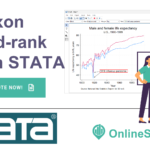Data Analysis for PhD in Psychology
Conducting data analysis is a critical stage in completing your PhD dissertation in psychology. Whether your research involves quantitative methods, qualitative analysis, or a mixed-methods approach, precise data analysis is essential for producing valid and reliable findings. At OnlineSPSS.com, we offer specialized Data Analysis for PhD in Psychology services, helping you navigate the complexities of statistical tools, data interpretation, and academic formatting.
Types of Psychology Research Fields
PhD research in psychology spans various specialized fields, each requiring unique approaches to data collection and analysis. Below are the major areas of psychology research:
1. Cognitive Psychology
Cognitive psychology explores mental processes such as memory, perception, and decision-making. Research in this area often involves experimental studies and statistical tests to analyze behavior and brain function.
2. Behavioral Psychology
Behavioral psychology focuses on observable behaviors and their conditioning. It frequently involves quantitative experiments and hypothesis testing, such as reinforcement studies or behavior modification programs.
3. Social Psychology
Social psychology studies how individuals are influenced by social contexts, group dynamics, and interactions. Surveys, correlation analysis, and experimental studies are common in this field.
4. Clinical Psychology
Clinical psychology involves understanding and treating mental health disorders. Research often combines quantitative data (e.g., intervention effectiveness) with qualitative insights (e.g., patient interviews).
5. Developmental Psychology
Developmental psychology examines psychological changes over the lifespan, focusing on children, adolescents, adults, and the elderly. Longitudinal studies and regression analyses are key methods here.
6. Industrial-Organizational Psychology
This area applies psychological principles to workplace settings, focusing on employee behavior, leadership, and productivity. Studies often involve survey data, factor analysis, and predictive modeling.
 Each of these fields presents unique challenges and opportunities for data analysis. We tailor our services to meet the specific needs of your research. Submit your project on our Get a Free Quote page for personalized support.
Each of these fields presents unique challenges and opportunities for data analysis. We tailor our services to meet the specific needs of your research. Submit your project on our Get a Free Quote page for personalized support.
The Importance of Data Analysis in PhD Psychology Dissertations
PhD-level research in psychology requires robust data analysis to uncover relationships, test hypotheses, and contribute new knowledge to the field. Proper data analysis:
PhD-level research in psychology requires robust data analysis to uncover relationships, test hypotheses, and contribute new knowledge to the field. Proper data analysis:
- Provides evidence to support or reject research hypotheses.
- Enhances the credibility and reliability of your findings.
- Aligns with academic standards, such as APA formatting.
Without accurate data analysis, the quality and impact of your research can be compromised. This is where our expertise can make a significant difference.
Types of Data Analysis for Psychology Research
PhD dissertations in psychology often require various types of data analysis, depending on the research question and methodology. Below are the common approaches:
1. Quantitative Data Analysis
Quantitative methods focus on numerical data and involve statistical tests to identify patterns, relationships, or group differences. Key tasks include:
- Descriptive Statistics (e.g., means, standard deviations, frequencies).
- Inferential Statistics (e.g., t-tests, ANOVA, regression models).
- Correlation Analysis (e.g., Pearson’s and Spearman’s).
- Predictive Models (e.g., logistic regression, SEM).
Quantitative analysis is essential for studies requiring measurable evidence to support hypotheses.
2. Qualitative Data Analysis
Qualitative methods focus on textual or non-numerical data, such as interviews, open-ended responses, and focus group discussions. This type of analysis helps researchers gain deeper insights into psychological phenomena, exploring themes, patterns, and contextual meanings beyond numerical results. Key tasks include:
- Thematic Analysis: Identifying recurring themes and organizing them into meaningful categories.
- Content Analysis: Systematically coding and interpreting textual data to identify trends.
- Narrative Analysis: Understanding individual experiences through storytelling and transcripts.
- Visual Representations: Using concept maps and diagrams to present qualitative findings clearly.
Tools like NVivo and MAXQDA are commonly used for qualitative analysis, helping to manage and organize large volumes of textual data effectively.
3. Mixed-Methods Analysis
Mixed-methods research combines quantitative and qualitative approaches for a comprehensive understanding of the research question. We help integrate:
- Statistical outputs with qualitative findings.
- Cohesive narratives to explain both data types.
Need help deciding the best approach? Submit your project details on our Get a Free Quote page for tailored guidance.
PhD dissertations in psychology often require various types of data analysis, depending on the research question and methodology. Below are the common approaches:
1. Quantitative Data Analysis
Quantitative methods focus on numerical data and involve statistical tests to identify patterns, relationships, or group differences. Key tasks include:
- Descriptive Statistics (e.g., means, standard deviations, frequencies).
- Inferential Statistics (e.g., t-tests, ANOVA, regression models).
- Correlation Analysis (e.g., Pearson’s and Spearman’s).
- Predictive Models (e.g., logistic regression, SEM).
Quantitative analysis is essential for studies requiring measurable evidence to support hypotheses.
2. Qualitative Data Analysis
Qualitative methods focus on textual or non-numerical data, such as interviews, open-ended responses, and focus group discussions. We assist with:
- Thematic Analysis: Identifying themes, patterns, and narratives.
- Content Analysis: Coding and organizing qualitative data.
- Visual Representations: Developing charts or concept maps for findings.
Qualitative analysis helps explore psychological phenomena in-depth, offering rich insights beyond numbers.
3. Mixed-Methods Analysis
Mixed-methods research combines quantitative and qualitative approaches for a comprehensive understanding of the research question. We help integrate:
- Statistical outputs with qualitative findings.
- Cohesive narratives to explain both data types.
Need help deciding the best approach? Submit your project details on our Get a Free Quote page for tailored guidance.
Challenges in PhD Psychology Data Analysis
Many PhD candidates encounter difficulties when conducting data analysis, including:
- Choosing the Right Tools: Deciding between SPSS, R, NVivo, or STATA for their analysis.
- Complex Data Interpretation: Understanding outputs such as p-values, effect sizes, and model fit indices.
- Time Constraints: Managing large datasets and meeting tight deadlines.
- Meeting APA Standards: Formatting results, tables, and figures according to APA 7th edition guidelines.
We alleviate these challenges by offering expert support for every stage of the data analysis process.
How We Help with Data Analysis for PhD in Psychology
At OnlineSPSS.com, we provide end-to-end support for data analysis in psychology dissertations. Here’s what we offer:
1. Data Preparation and Cleaning
- Managing missing values and outliers.
- Structuring raw data for statistical or thematic analysis.
- Ensuring data accuracy for robust results.
2. Statistical Analysis
- Applying the most suitable statistical methods for your research question.
- Conducting tests like ANOVA, regression, factor analysis, and SEM.
- Interpreting outputs in a clear and meaningful way.
3. Qualitative Analysis
- Coding interview transcripts and open-ended survey data.
- Identifying themes using NVivo or MAXQDA.
- Providing structured qualitative insights for results chapters.
4. APA-Formatted Results and Visualizations
- Writing results sections with APA-compliant tables and figures.
- Creating visual aids such as graphs, charts, and diagrams.
- Offering clear explanations of statistical or thematic findings.
 We ensure your analysis aligns with your dissertation’s objectives and academic standards. Visit our Get a Free Quote page to get started.
We ensure your analysis aligns with your dissertation’s objectives and academic standards. Visit our Get a Free Quote page to get started.
Statistical Tools We Use for Psychology Dissertations
Our team is proficient in the leading statistical software tools used for PhD psychology research, including:
- SPSS: For descriptive, inferential, and multivariate statistical analysis.
- R Programming: For advanced modeling, coding, and data visualization.
- STATA: Ideal for regression models and longitudinal data analysis.
- NVivo: Perfect for coding qualitative data and thematic analysis.
- JAMOVI and JMP: User-friendly tools for statistical testing and reporting.
 Let us recommend the best tool for your dissertation’s needs. Submit your project on our Get a Free Quote page.
Let us recommend the best tool for your dissertation’s needs. Submit your project on our Get a Free Quote page.
Our Step-by-Step Process
We make data analysis simple and stress-free through a structured process:
Step 1: Share Your Project Details
Submit your research topic, dataset, and analysis requirements on our Get a Free Quote page.
Step 2: Receive a Tailored Plan
We create a custom analysis plan, outlining methods, tools, and timelines.
Step 3: Data Analysis and Reporting
Our experts perform data analysis, interpret results, and prepare APA-compliant outputs.
Step 4: Review and Adjustments
We provide revisions to ensure your results align with your dissertation goals.
Why Choose OnlineSPSS.com for Your Psychology Data Analysis?
Here’s why PhD candidates trust us with their dissertation data analysis:
- Experienced Analysts: Our team specializes in psychology research and advanced statistical methods.
- Tailored Solutions: Every analysis is customized to meet your specific research needs.
- Affordable Services: High-quality assistance at competitive rates.
- Timely Delivery: We respect deadlines and ensure prompt delivery of results.
- Confidentiality Assured: Your data and research remain secure and private.
Start your journey to accurate and reliable data analysis by submitting your project on our Get a Free Quote page.
Take the Next Step in Your PhD Journey
Data analysis doesn’t have to be overwhelming. At OnlineSPSS.com, we provide the expert guidance and support you need to complete your PhD dissertation in psychology with confidence. From statistical analysis to qualitative interpretation, we ensure your results are accurate, meaningful, and ready for submission.
Submit your project today via our Get a Free Quote page and let us help you achieve academic success!
Follow us on LinkedIn










